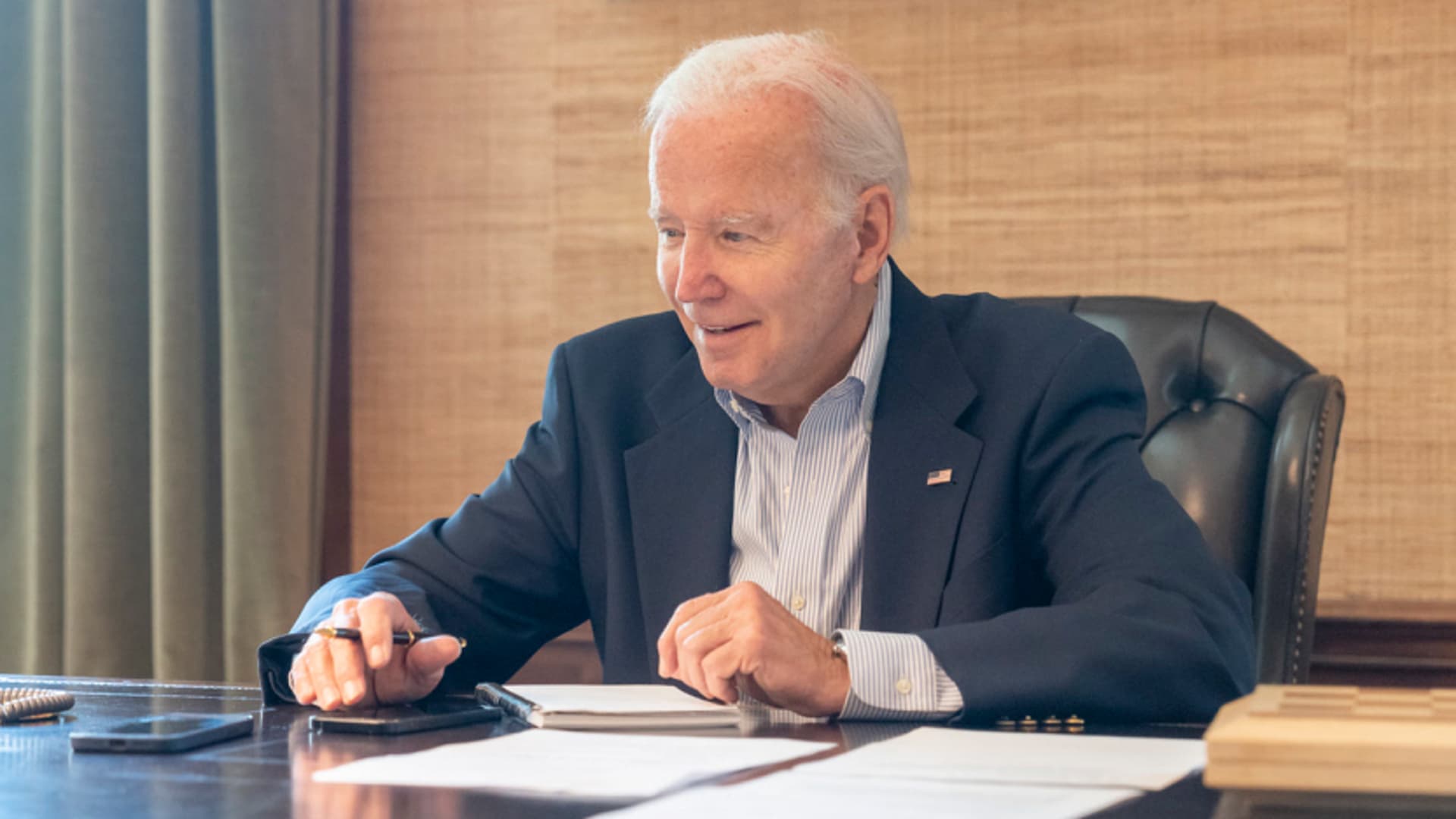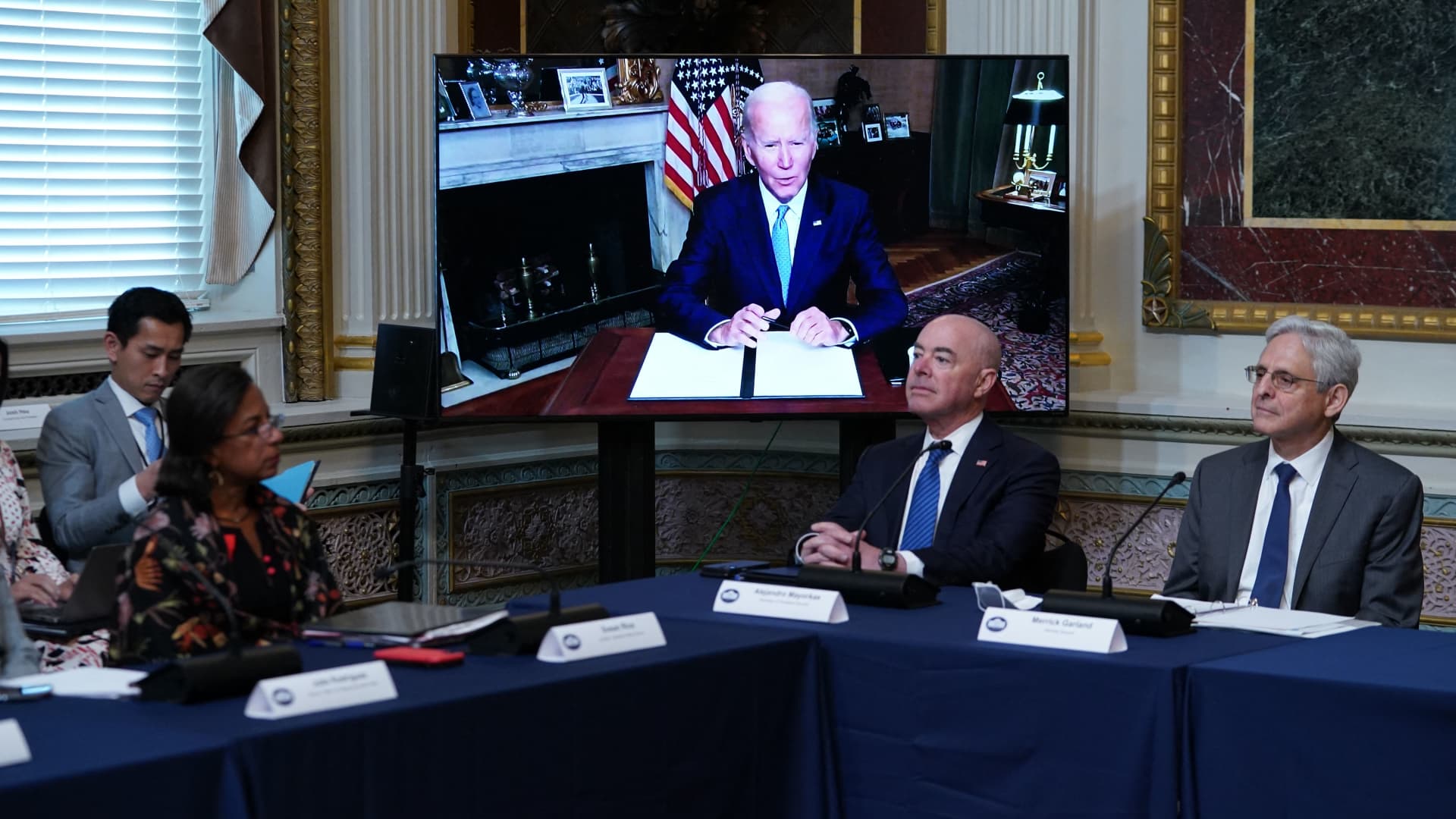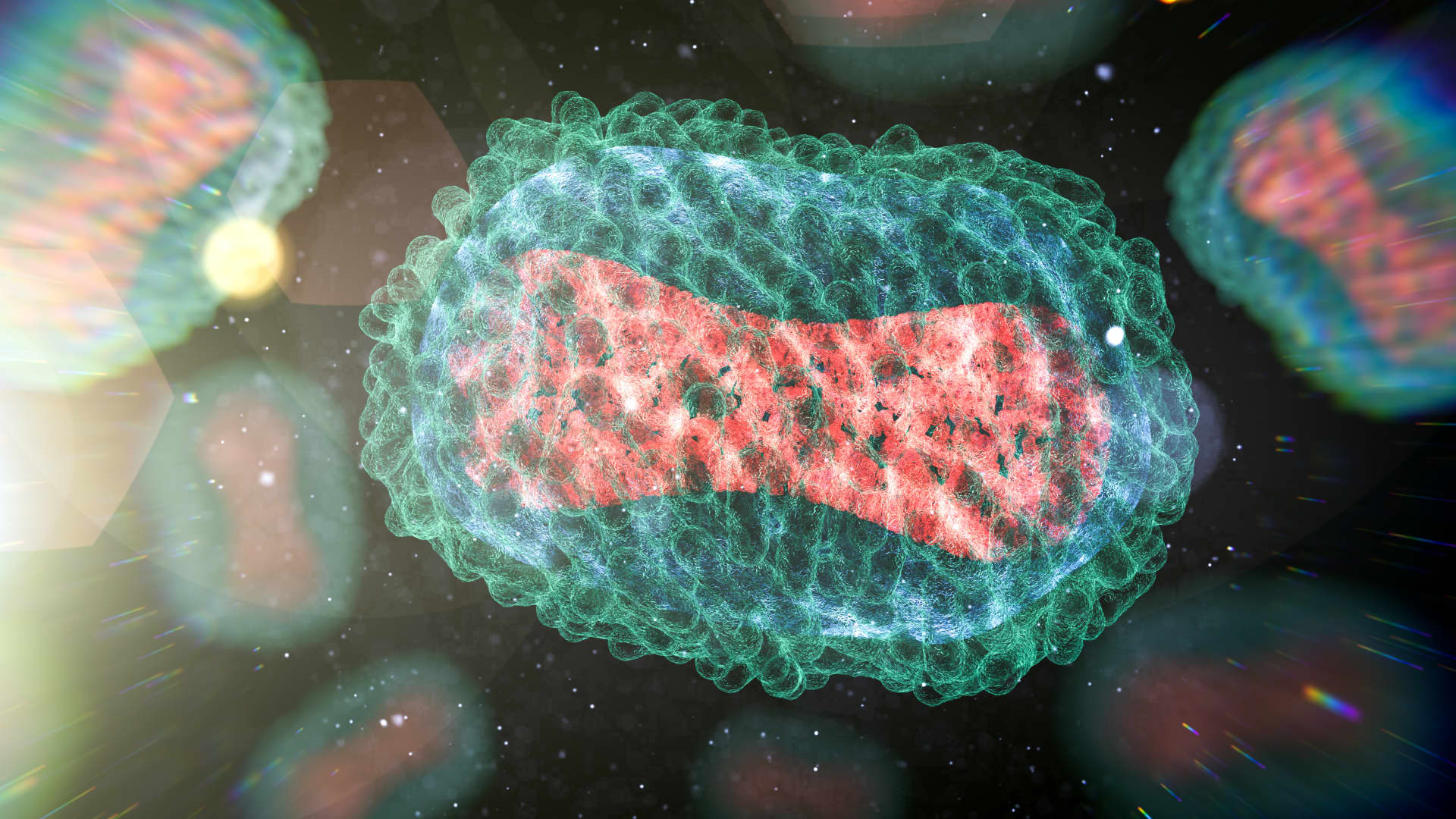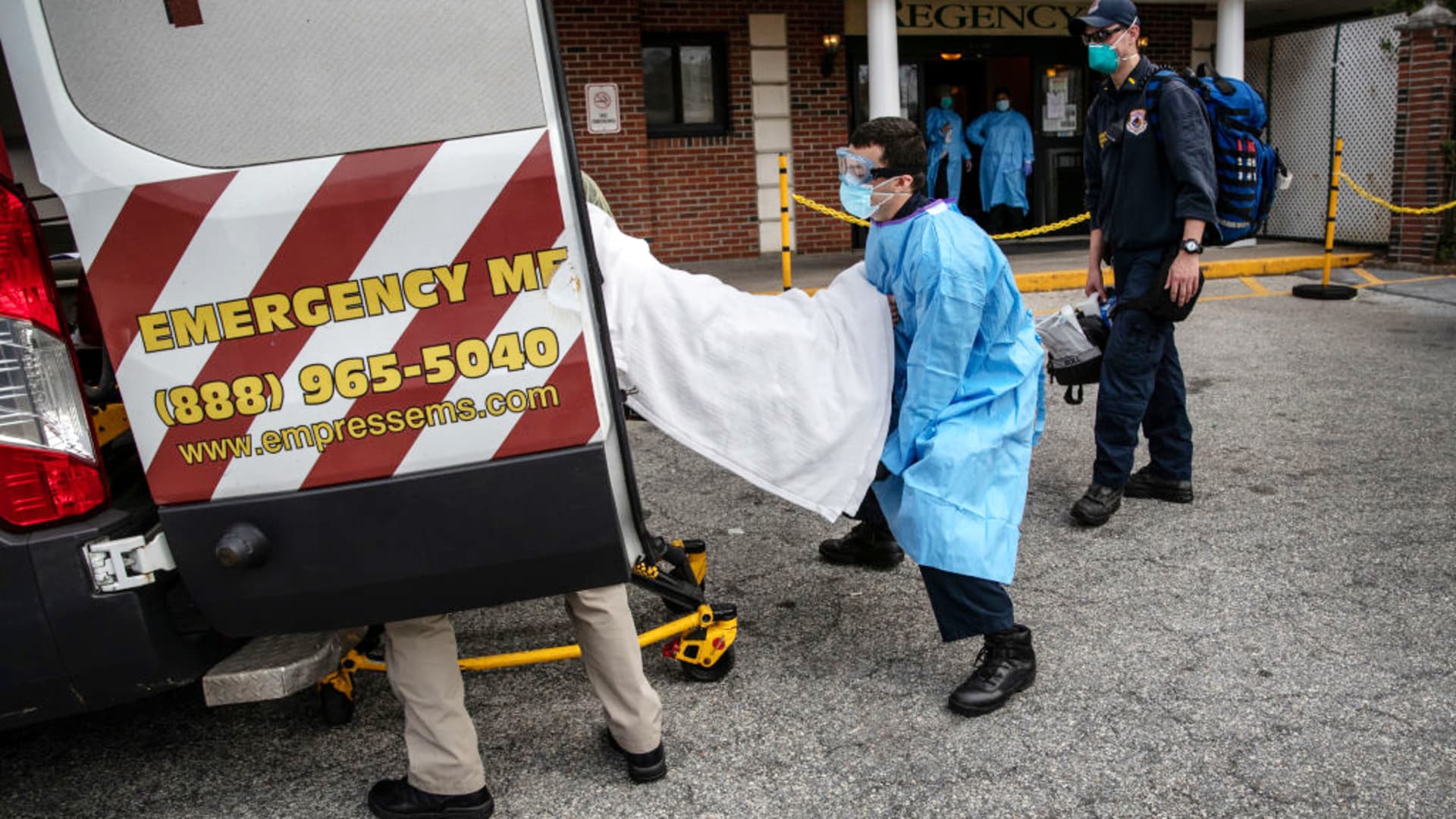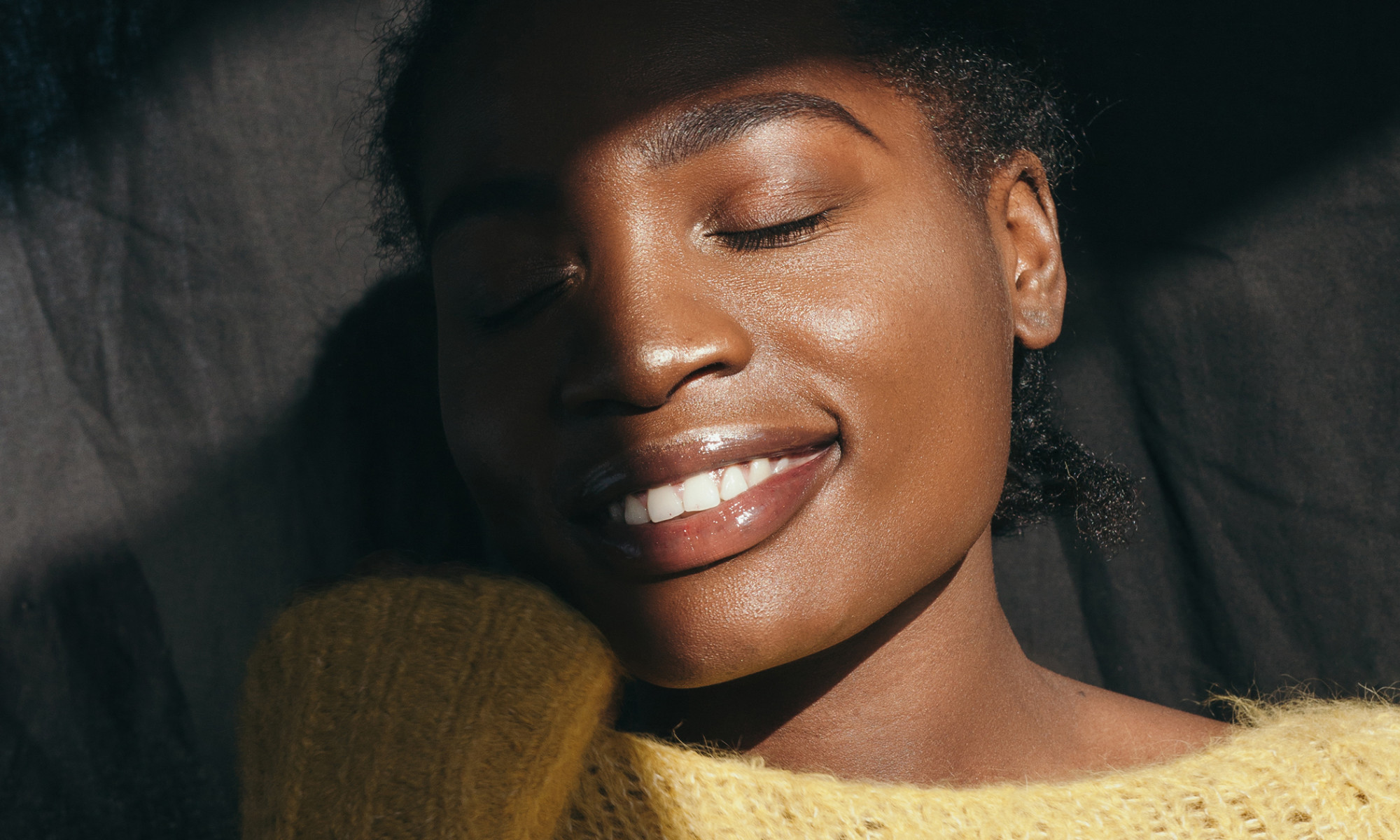CDC estimates 1.7 million gay and bisexual men face highest risk from monkeypox
The CDC said gay men who are HIV positive or who are taking medicines to reduce their chance of contracting HIV face the greatest risk from monkeypox.
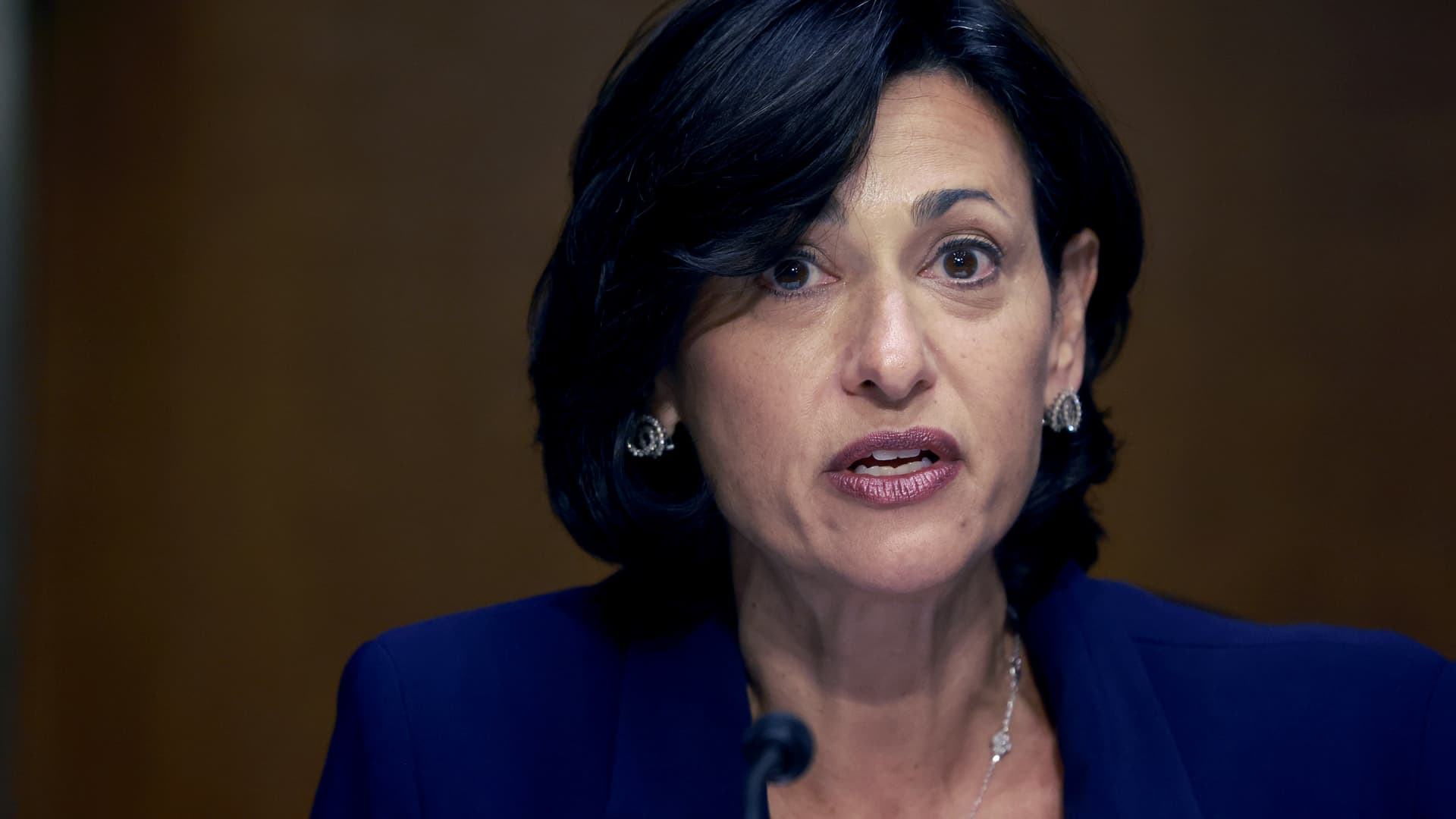
The Centers for Disease Control and Prevention estimates about 1.7 million men who have sex with men face the biggest threat from monkeypox right now.
CDC Director Rochelle Walensky told reporters on a call Thursday that gay and bisexual men who are HIV positive or who are taking medicines, called PREP, to reduce their chance of contracting HIV face the greatest health risk from monkeypox.
"That's the population we have been most focused on in terms of vaccination," Walensky said.
The U.S. has secured 1.1 million doses of the two-dose vaccine Jynneos so far, according to the Health and Human Services Department. The federal government has delivered more than 600,000 doses of the vaccine since May, according to HHS.
Rochelle Walensky, MD, MPH, Director, United States Centers for Disease Control and Prevention; speaks during the COVID Federal Response Hearing on Capitol Hill on June 16, 2022 in Washington, DC.
Joe Raedle | Getty Images
The Food and Drug Administration approved Jynneos in 2019 for adults ages 18 and older who are at high risk of smallpox or monkeypox. Jynneos, made the Danish biotech company Bavarian Nordic, is the only approved monkeypox vaccine in the U.S.
Walensky acknowledged last month that demand for the vaccine has outstripped supply, leading to long lines outside clinics in many cities. Sexual health clinics that serve the LGBTQ community have said the vaccination campaign needs to expand to anyone who thinks they're at risk of getting monkeypox to bring the outbreak under control.
"What we really want to do is get to the point where we can vaccinate everyone who wants it," said Dr. Ward Carpenter, co-director of health services at the Los Angeles LGBT Center, which is administering monkeypox vaccines, conducting screenings and prescribing antiviral treatments.
"We're still not anywhere close to that. We are really trying to focus on the people who are most at need, most at risk. But that's not a successful public health strategy," Carpenter said.
Monkeypox has been spreading primarily through skin-to-skin contact during sex among gay and bisexual men, public health officials say. About 98% of patients who provided demographic information to clinics identified as men who have sex with men, according to the CDC. But public health officials have repeatedly emphasized that anyone can catch the disease through physical contact with someone who has it or contaminated materials such as bedsheets and towels.
But as infections rise, the risk grows that the virus could start spreading more broadly. At least two children in the U.S. have caught monkeypox likely through transmission within their families, according to the CDC.
"We're trying to contain this disease in the people who have it right now," Carpenter said. "This is a moment, an opportunity for us to do so because it is in a relatively close knit community right now. If this gets out of that community, people have totally lost the capacity to contain this," he said.
The U.S. has confirmed more than 6,600 cases of monkeypox in 48 states, Washington, D.C., and Puerto Rico as of Thursday, according to the CDC. The actual number of infections is likely higher because people can only get tested for the virus after they develop the rash, which can take a week or more in some cases. Clinicians swab the rash to take the specimen for the test.
Monkeypox is rarely fatal and no deaths have been reported in the U.S. so far. But patients can suffer debilitating pain from the rash caused by the virus.

 BigThink
BigThink 








